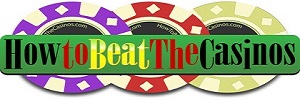Slot Machine Myths Busted
Slot machines have been a casino staple for over a century. They’re flashy, fun, and seemingly simple—pull a lever, hit spin, and cross your fingers. But despite their popularity, slot machines are also surrounded by myths, superstitions, and misinformation. And thanks to influencer videos, online chatter, and anecdotal stories passed around casino floors, these myths persist—even in 2025.
Whether you’re a new player or a seasoned spinner, understanding the truth behind slot machines is essential to having a smarter, safer, and more enjoyable experience. In this article, we break down the most common slot myths, backed by insights from real casino experts, gaming regulators, and the math behind the machines.
Let’s separate fact from fiction—because when it comes to gambling, knowledge isn’t just power—it’s protection.
Myth #1: “This machine is due for a win.”
This is easily the most common misconception in the slot world. You’ve seen someone feeding a machine for an hour, walking away frustrated, and then the next player hits a jackpot. Naturally, you assume the machine was “due.” But here’s the truth: slot machines do not have memory.
Every spin is powered by a Random Number Generator (RNG), which produces an outcome entirely independent of the spin before it. It doesn’t matter if the machine hasn’t paid out in days or just hit a jackpot five minutes ago. Each spin has the same odds. Period.
Expert insight: Slot developers and casino regulators confirm that RNGs are tested rigorously to ensure compliance and fairness. Machines are not programmed to track player behavior or “make up for” dry spells.
Myth #2: “Playing max bet increases your odds.”
This one is partly true—but often misunderstood. Playing max bet may increase your payout potential, especially on older machines or those with progressive jackpots. But it does not increase your odds of winning a spin.
In modern video slots and online games, payout structures are tied to paylines and features. Max bet might unlock more paylines or give access to a bonus feature—but the core spin result is still randomized.
Expert insight: Unless a machine explicitly states that maximum bet is required for certain jackpots, there’s no mathematical reason why max betting gives better odds. It just increases your exposure.
Myth #3: “Casinos tighten machines when it’s busy.”
This one comes from observation bias—players believe that when the casino is crowded, they win less. But regulated machines cannot be adjusted on the fly. In most jurisdictions, slot machines must be physically reconfigured to change payout percentages, and that process is logged and overseen by gaming control boards.
Expert insight: Casinos are strictly monitored. Tampering with machines or adjusting them during play would be a regulatory nightmare, and no reputable venue risks it.
Myth #4: “You can time the reels to win.”
Some people believe they can stop the reels at just the right moment to land a jackpot. It makes sense intuitively—after all, the spinning animation gives the illusion of control. But the result of your spin is locked in the moment you press the spin button. The reels are just visual flair.
Tapping the button a second time or hitting “stop” won’t change the outcome—it just reveals it faster.
Expert insight: Slot machines are programmed for entertainment, and the stop feature exists only to give the illusion of influence. It’s purely cosmetic.
Myth #5: “Slot placement affects payout rates.”
There’s a persistent belief that machines near walkways or entrances are “looser” so that passersby see winners and are tempted to play. While this used to be partially true in some old-school casinos, modern machines are networked and centrally programmed to meet legal payout ranges. Positioning has little or no impact on outcome.
Expert insight: Placement is about game variety and foot traffic, not house edge. It’s more about marketing than mechanics.
Myth #6: “Online slots are rigged.”
This myth gained momentum as online gambling exploded. People assume that because they can’t see the physical machine, the game must be rigged. But licensed online casinos are held to strict regulatory standards—often as strict (or stricter) than land-based venues.
Expert insight: Online slot software must pass third-party audits, RNG verification, and routine inspections. If you’re playing on a licensed site, your odds are no different than in a physical casino.
Tip: Avoid unregulated or offshore casinos where these protections may not apply.
Myth #7: “You can beat the machine with a system.”
There are hundreds of so-called “strategies” that promise to beat slot machines. Most involve betting patterns, spin counts, or identifying hot and cold machines. The reality? No strategy can beat RNGs. They’re designed to eliminate predictability.
The best you can do is manage your bankroll, play games you enjoy, and walk away when it stops being fun.
Expert insight: Slot machines have a built-in house edge. That’s not something you can outwit. You might get lucky—but that’s the key word: lucky, not strategic.
What You Can Do to Improve Your Slot Experience
Even if you can’t beat the odds, you can manage them. Here’s how:
- Pick games with higher RTPs (Return to Player). These generally offer better long-term outcomes.
- Set time and money limits. Stick to your plan, win or lose.
- Know when to stop. If you’re chasing losses or losing track of time, it’s time to walk away.
- Treat it as entertainment, not income. The most responsible players budget for slots like they would for a movie or dinner out.
- Celebrate small wins. Don’t wait for the jackpot to feel successful. Enjoy the ride.
Final Thoughts
Slot machines are fun, exciting, and always evolving—but they’re also mathematical tools with built-in advantages for the house. The myths around them can lead players into emotional decision-making, overspending, or chasing outcomes that were never realistic in the first place.
By understanding the truth behind the flashing lights, you empower yourself to play smarter. When you know what to expect—and what not to believe—you can enjoy the game for what it is: a fun, immersive escape that, like all entertainment, is best enjoyed in moderation.
Remember: the house always wins eventually—but you can still win the night by playing responsibly.

